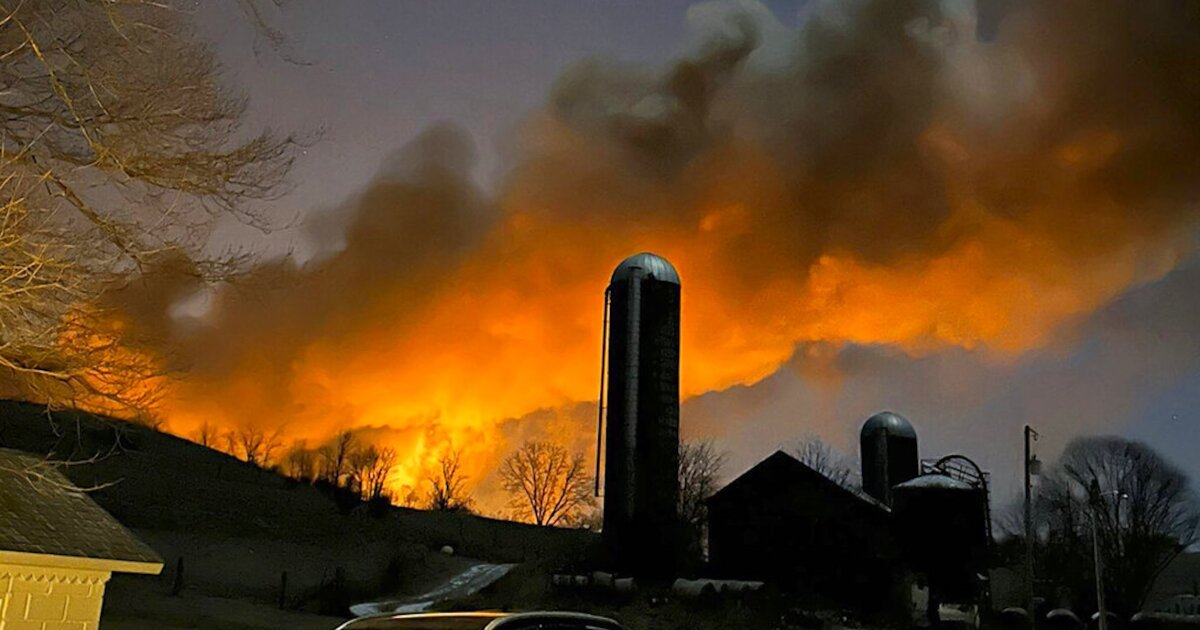

Following the toxic train derailment and explosion in East Palestine, Ohio, on Feb. 3, residents are furious about the mounting health concerns related to the incident.
Ohio resident Wade Lovett is reportedly having trouble breathing and now “sounds like Mickey Mouse.”
‘SOMEONE ON THE STAFF BLEW IT’: BIDEN AND BUTTIGIEG’S BAD WEEK IN EAST PALESTINE
“My voice sounds like Mickey Mouse. My normal voice is low. It’s hard to breathe, especially at night,” he told the New York Post. “My chest hurts so much at night I feel like I’m drowning. I cough up phlegm a lot. I lost my job because the doctor won’t release me to go to work,” Lovett allegedly said in “an extremely high-pitched voice.”
The 40-year-old auto dealer says medical professionals have told him that he has “chemicals” in him, but “there’s no one in town who can run the toxicological tests to find out which ones they are.”
Despite his health condition, he and his fiancee have been delivering bottled water to other residents in his community.
Other residents are experiencing health issues, including rashes and sore throats from the chemical fire explosion.
Texas A&M University of Environmental Protection Agency reported on Friday that it found nine air pollutants at levels that could raise long-term health concerns for residents in the area.
Toxic vinyl chloride was spilled and later burned when rail cars blew up following the derailment. A class-action suit has been filed against Norfolk Southern Railway on behalf of hundreds of affected residents within 30 miles of the derailment.
Medical professionals suspect that some people’s headaches, rashes, and respiratory problems are associated with the hazardous chemicals in the air.
Social media influencer Benny Johnson visited the scene and said the air quality “burns your skin.”
“You get hit with it. It’s like a wave,” he said in a social media video.
CLICK HERE TO READ MORE FROM THE WASHINGTON EXAMINER
East Palestine Mayor Trent Conaway says he’s nervous about the long-term effects on his residents.
“A lot of our residents have moved back in, and I’m generally concerned about their concerns. I just don’t know — they tell us the water’s safe, it’s safe to go back to your home, but yet there’s people getting rashes, and I mean, they’re nervous, so I really feel for our residents,” he said. “We’re going to need yearly health checks, if not, you know, bi-yearly health checks.”





